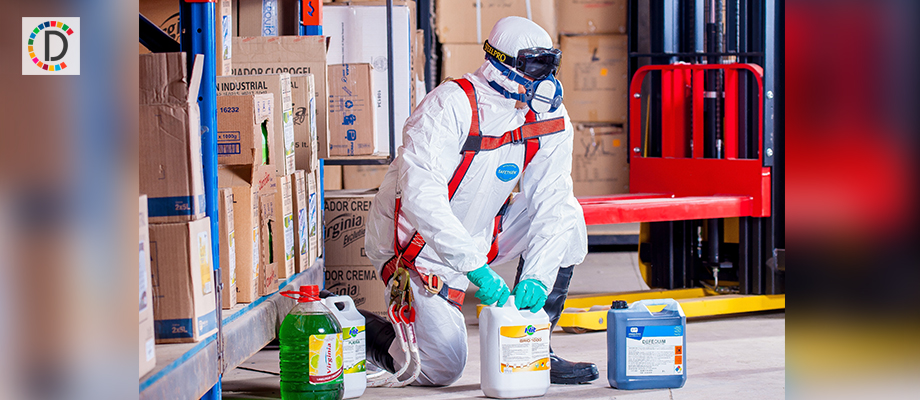Delhi's 23% people COVID-19 infected but herd immunity requires 60-65% positive cases: Experts
A serological survey involves testing of the blood serum of individuals to check for the prevalence of antibodies against an infection. The experts also cautioned against lowering of guard despite a fall in the number of COVID-19 cases reported on a daily basis in the national capital and warned against the possibility of a second peak.

- Country:
- India
The national capital is still far from herd immunity against the coronavirus, experts said on a serological survey, which has found that nearly 23 per cent of the people surveyed have developed antibodies to the virus. The study, which was conducted from June 27 to July 10 by the National Centre for Disease Control (NCDC) in collaboration with the Delhi government, has also indicated that a large number of infected persons remain asymptomatic. A serological survey involves testing of the blood serum of individuals to check for the prevalence of antibodies against an infection.
The experts also cautioned against lowering of guard despite a fall in the number of COVID-19 cases reported on a daily basis in the national capital and warned against the possibility of a second peak. After analysing the findings of the study, virologist Dr Shahid Jameel said Delhi is still far from developing herd immunity and the infection has spread rapidly.
Explaining the findings, he said if a 23.5-per cent seroprevalence is seen in Delhi, for a population of 1.87 crore, this amounts to 44 lakh infections. Since the national capital has so far witnessed 3,663 deaths due to COVID-19, the infection fatality rate is 0.08 per cent, which is similar to the first seroprevalence study conducted by the Indian Council of Medical Research (ICMR) in April. "This tells me three things -- the infection has spread quite fast, there is no mortality rate reduction since April-end and we are still far from herd immunity.
"Delhi has so far conducted 8.3 lakh COVID-19 tests. If 20 per cent is symptomatic out of 44 lakh people, there would be 8.8 lakh people with symptoms. But if only one positive is picked in 10 tests, we are even missing symptomatic people and are definitely under-testing even those with symptoms," Jameel told PTI. Anurag Agarwal, the director of the Institute of Genomics and Integrative Biology, said the findings indicate that around 25 per cent people have recovered from the disease, after adjusting for sensitivity and specificity.
"Since some people may not have developed adequate antibodies, the actual number may be as high as 30 per cent. This suggests that interaction pairs capable of disease transmission amongst Delhi residents will be fewer and the transmission chains shorter," he added. Agarwal said generally, when serology positivity hits 20 per cent, pretty much globally, that is when the first peak happens and opined that Delhi and Mumbai seem to have got to that point.
"Delhi peaked in the end of June. This is not herd immunity and there may still be a second peak or slowing down of the decline when we reopen further," he said. Professor (Dr) J C Suri, director and HOD, Pulmonology, Critical Care and Sleep Medicine at Fortis Hospital Vasant Kunj, said even though the number of people infected has come down, people should not lower the guard.
For each epidemic, there is a percentage that is calculated on the basis of the reproduction number, he said, adding that based on that, one can calculate the percentage of people required to be infected or immune either by natural infection or vaccination. Once that happens, there is an arrest of the epidemic. "If you see COVID-19, the percentage of population required to be immune due to natural infection or vaccination is 60. The government has released the serological survey, which is coming to around 23 per cent.
"This number is far below the 60-65 per cent required to develop herd immunity. This means that because of the good control measures, the number has come down, but the epidemic has not died. There is a lot of vulnerable people still left. If we relax now, there is going to be a second peak," Suri said. Thyrocare, a chain of diagnostic and preventive care laboratories, is also carrying out a pan-India serological survey. It has tested 3,956 people and reported 1,340 of them to be COVID-19 positive, which indicates a rate of 33.87 per cent.
(This story has not been edited by Devdiscourse staff and is auto-generated from a syndicated feed.)
ALSO READ
Kiwis Leave India Stunned, Eye Historic Whitewash in Mumbai Showdown
Ravi Raja Slams Congress for Favoritism, Joins BJP as Mumbai VP
India Aims to Rebound in Decisive Mumbai Test Against New Zealand
Mumbai Crime Branch Busts Chhota Rajan Extortion Racket
Certus Capital's Strategic Investment Surge in Mumbai's Housing Market










